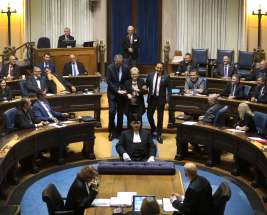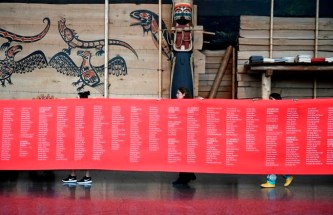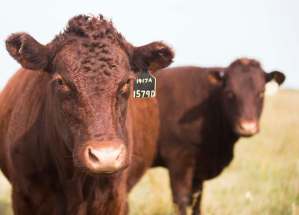Home and native land Playwright Ian Ross's adventurous new work addresses Canada's uneasy history
Read this article for free:
or
Already have an account? Log in here »
To continue reading, please subscribe:
Monthly Digital Subscription
$0 for the first 4 weeks*
- Enjoy unlimited reading on winnipegfreepress.com
- Read the E-Edition, our digital replica newspaper
- Access News Break, our award-winning app
- Play interactive puzzles
*No charge for 4 weeks then price increases to the regular rate of $19.00 plus GST every four weeks. Offer available to new and qualified returning subscribers only. Cancel any time.
Monthly Digital Subscription
$4.75/week*
- Enjoy unlimited reading on winnipegfreepress.com
- Read the E-Edition, our digital replica newspaper
- Access News Break, our award-winning app
- Play interactive puzzles
*Billed as $19 plus GST every four weeks. Cancel any time.
To continue reading, please subscribe:
Add Free Press access to your Brandon Sun subscription for only an additional
$1 for the first 4 weeks*
*Your next subscription payment will increase by $1.00 and you will be charged $16.99 plus GST for four weeks. After four weeks, your payment will increase to $23.99 plus GST every four weeks.
Read unlimited articles for free today:
or
Already have an account? Log in here »
Hey there, time traveller!
This article was published 30/09/2019 (2265 days ago), so information in it may no longer be current.
“Do you know why the Canadian flag is red and white?” asks Indigenous playwright Ian Ross.
THEATRE PREVIEW
The Third Colour
By Ian Ross
Prairie Theatre Exchange
Oct. 2-20
Tickets $25-$54 at pte.mb.ca
Ross, 51, evidently employs Socratic questioning in his capacity as a theatre teacher, with stints at the Manitoba Theatre for Young People, the University of Winnipeg and the University of Manitoba. But here, the question has to do with the title of his newest work, The Third Colour, having its world première on Thursday at Prairie Theatre Exchange.
Ross answers his own question regarding the title. “It’s red and white to represent and honour the two founding nations of Canada: Red for the English. White for the French,” he says. “Because there were only two nations that founded this country!”
The Third Colour ostensibly addresses that criminal omission of the role of First Nations in creating Canada, but it does not do so in the context of a conventional drama. (Ross is hesitant to even classify it, but is happy with the description “absurdist dramatic comedy.”)
The story, starring Tracey Nepinak and Kathleen MacLean, is somewhat oblique, going by the PTE press release, which describes the play as a story told “through the eyes of two spirits in the shape of Indigenous women, tracing the history of Canada from pre-settlers to current day.”
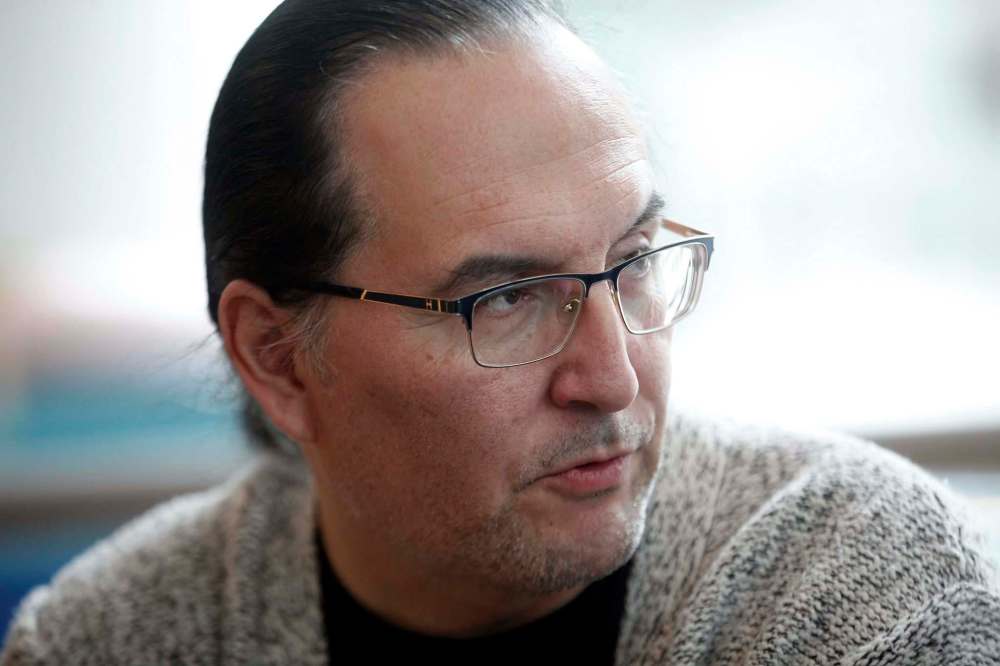
“I think people may be expecting a naturalistic storytelling from me, because that’s what I do,” says Ross, who became the first Indigenous person to win the Governor General’s Award for English Drama in 1997, with his first professional production, fareWel.
The Third Colour offers up a more adventurous, experimental narrative.
“These are stories told from an Indigenous perspective through these two… I’ll call them ‘beings,'” he says. “In the story, you get the sense they’ve lived lives before. And that this is another life they’re living.”
Ross says his writing style is to let ideas percolate for a long time before his relatively quick writing process. In the case of The Third Colour, Ross says the project took longer than usual after he took a break from playwrighting.
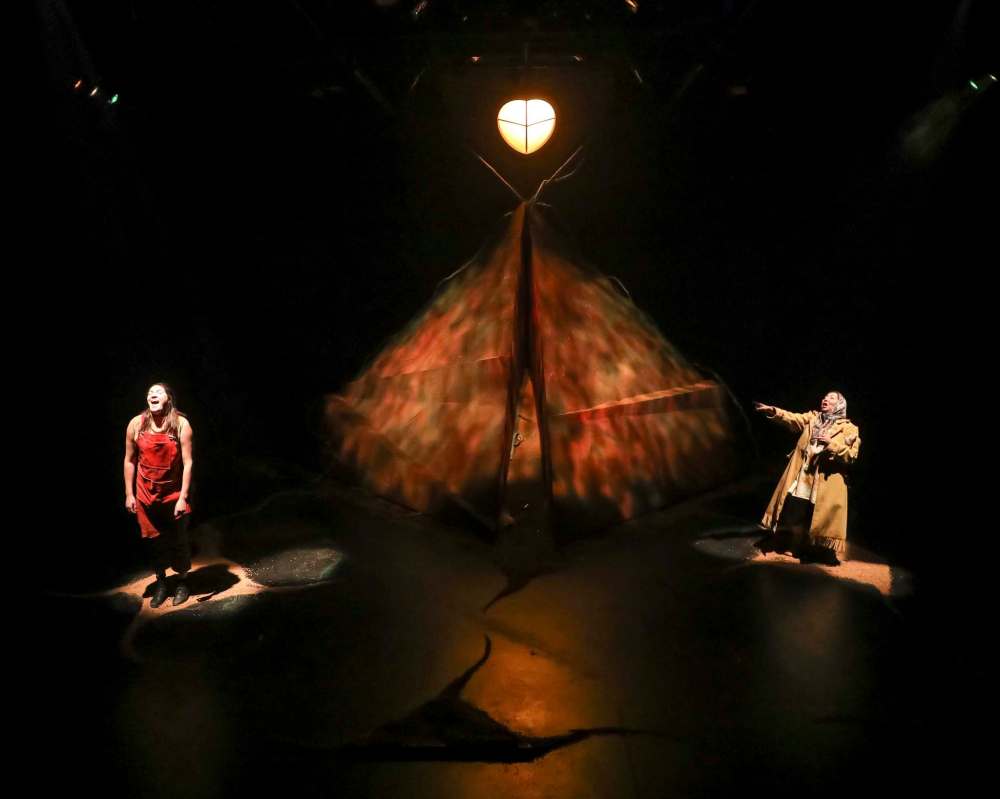
“When I was in high school, my teacher showed us a film with (Prairie novelist) W.O. Mitchell, and they asked, ‘What’s your advice to young people who want to become writers?’ And he’s like, ‘Don’t.’
“I got really pissed off at that,” he recalls. “Like, screw you, old man, you probably just don’t want any competition.
“But then he said: if you do want to become a writer, make sure you take some time off first go live go work. Go experience the world, experience life. And then come back and become a writer.”
Ross took that wisdom to heart after watching a production of one of his plays and finding himself underwhelmed.
“I didn’t think it was my best work,” he recalls. “I was going through all this personal crap. So I’m looking at the stage and I’m thinking, ‘Well, I could do this for the next 30 years. Crank out a play, get produced, crank out a play, get produced…’
“And I said: No way. I’m not doing that. So I decided, OK you’re going to go live your life for a bit. So I did.”
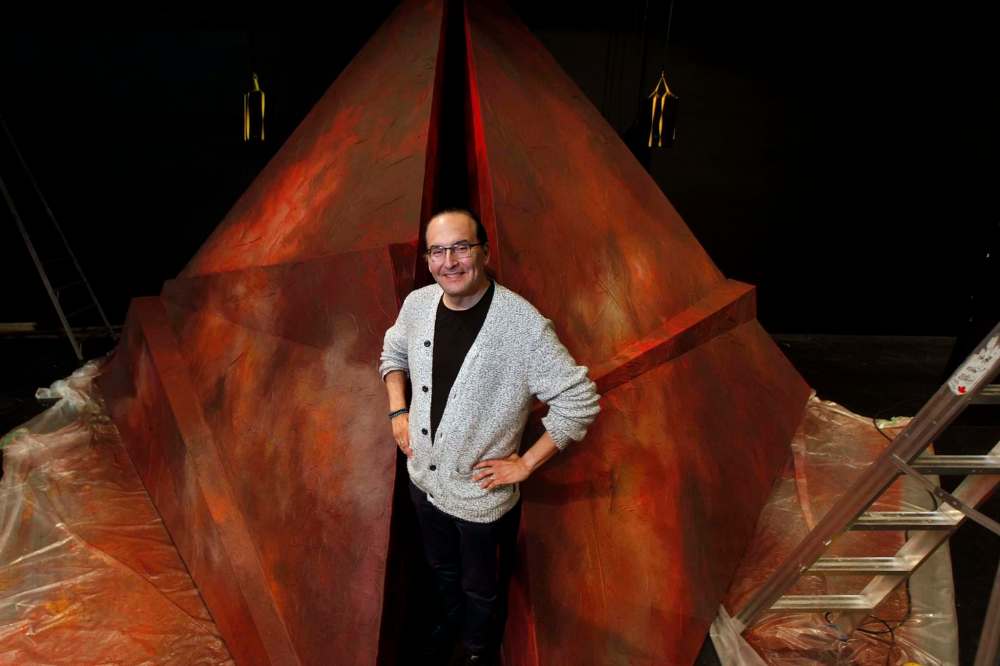
He came back to playwrighting with a fierce sense of purpose.
“I always love that line in Malcolm X when he said: ‘We didn’t land on Plymouth Rock. Plymouth Rock landed on us.’ That’s very similar to the Indigenous experience of what became Canada,” he says.
“I believe the No. 1 issue facing Indigenous people today is identity, which is also the issue facing most Canadians,” Ross says. “You look at things like residential schools. What was that about, really? It was about identity. Erasing that identity. Or transforming it into something that the dominant culture wanted.
“With this piece, I touch on all of those things,” he says. “The question I’m asking — because good plays, in my opinion, ask a question — is: Should we as Indigenous people continue to try to work with Canada? Or should we just go our own way? Because I’m actually seeing that happen right now. I’m seeing First Nations that are just saying: You know what? We don’t need to follow your laws. We’re our own nation.
“Canada’s mythology is Indigenous mythology and Canada will never truly come into its own in the world until it embraces where it comes from and the people who made that possible.”
randall.king@freepress.mb.ca
Twitter: @FreepKing

In a way, Randall King was born into the entertainment beat.
Our newsroom depends on a growing audience of readers to power our journalism. If you are not a paid reader, please consider becoming a subscriber.
Our newsroom depends on its audience of readers to power our journalism. Thank you for your support.
History
Updated on Tuesday, October 1, 2019 1:39 PM CDT: changes Métis to Indigenous

